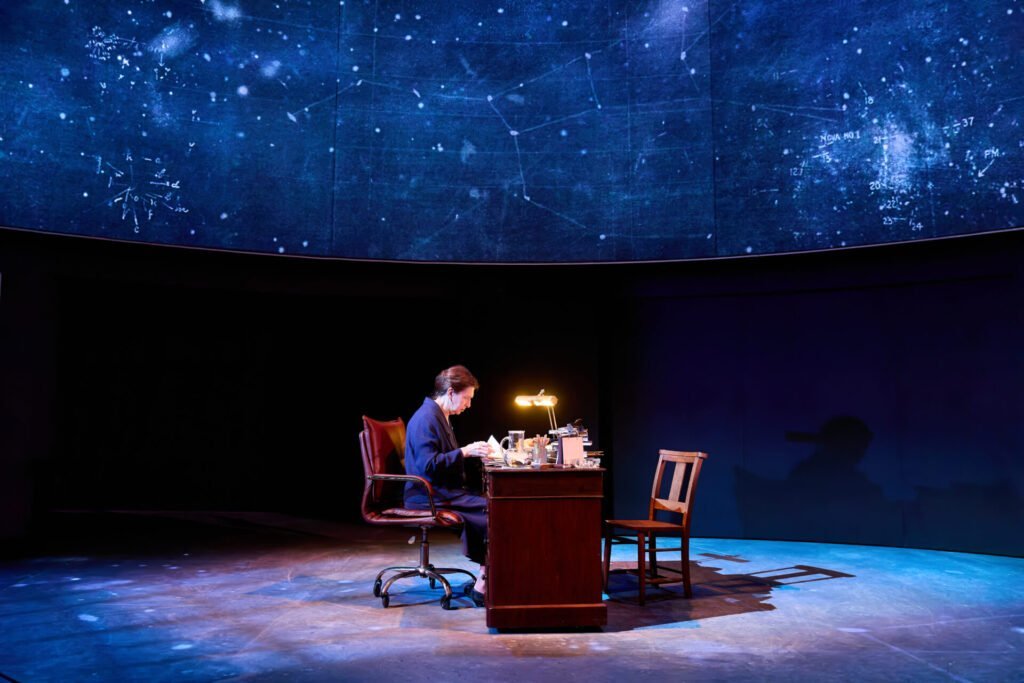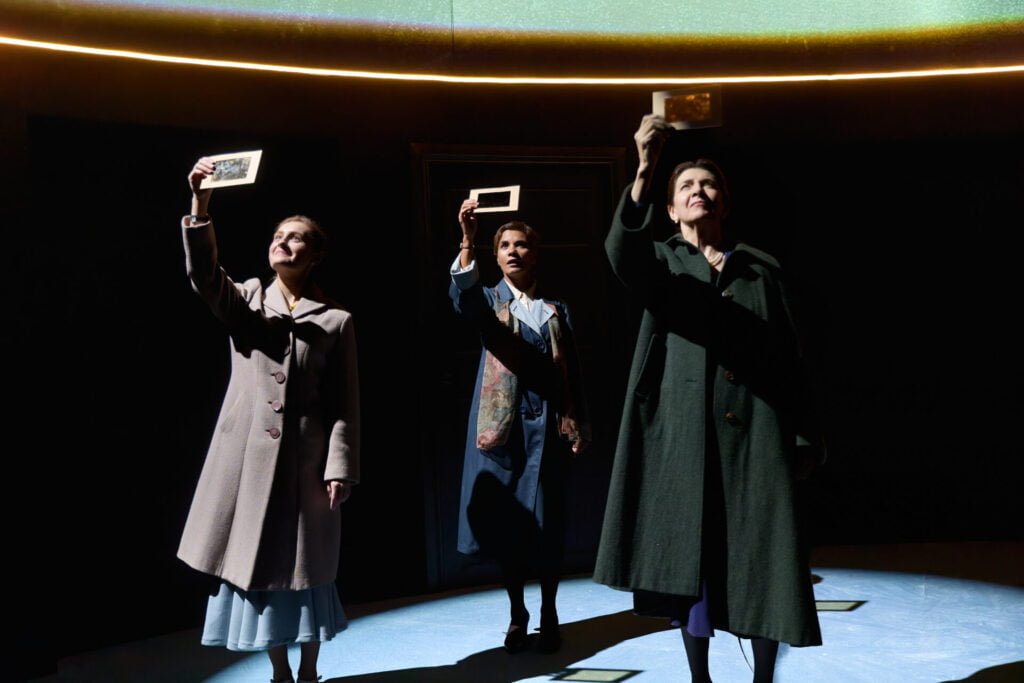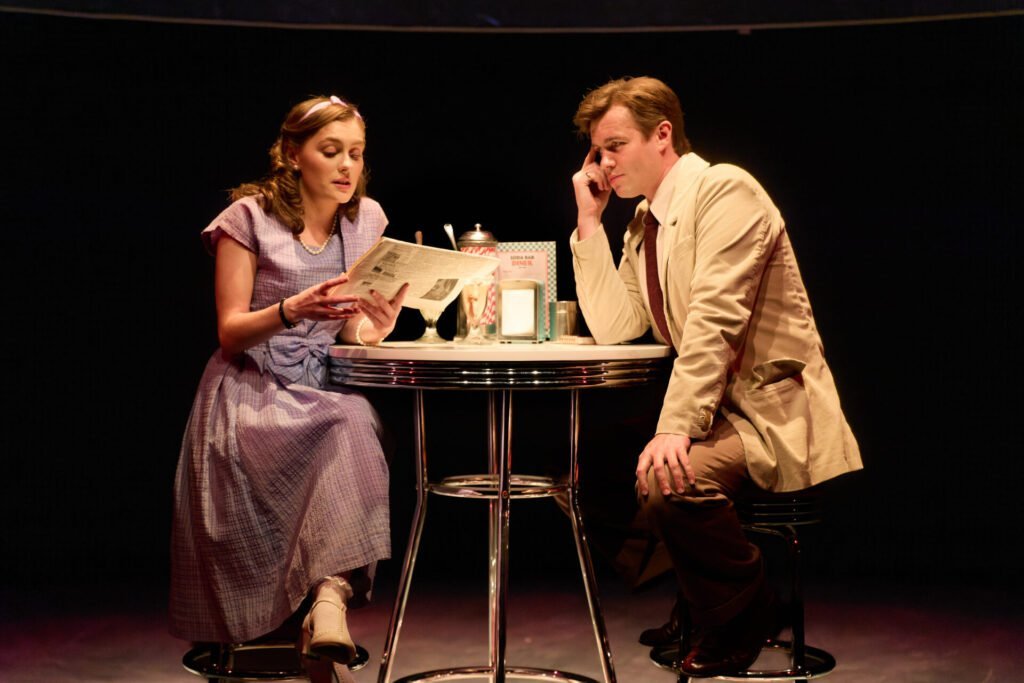Woman Astronomer breaks the Glass Ceiling
“The thing is, Rona, no matter how talented we are or how hard we work, we are subject to the vagaries if chance. “
Cecilia

This is the first play of the Hampstead Theatre’s new Autum season and it marks the return of the theatre to hopefully interesting plays. To those who remember their Periodic Table from school they will know the lightest element is Hydrogen.
Written by Stella Feehily it deals with a little-known English scientist Cecilia Payne-Gaposchkin (Maureen Beattie) who managed to disprove some of Einstein’s theories about the universe and its makeup. Divided into three parts it starts in 1925 when Cecilla presents, to her mentor Professor Henry Norris Russell (Julian Wadham), her PhD thesis, a draft about the makeup of stars. Conventional thinking was that suns had the same mixture of elements as planets but her findings were that suns were a mixture of Hydrogen and Helium. Russell, so incensed by her conclusions, threatens not to have it published and warned also to have her dismissed from the Harvard College Observatory in Cambridge Massachusetts.

The second period set in 1956 deals with the appointment of a new full professorship to the male dominated Harvard University. The third period in 1977 which opens and closes the play is Cecilia Payne-Gaposchkin accepting an award under The Henry Norris Russell Prize Lecture .
In 1925 she reluctantly gives way to the demands of male institutional dominance to rewrite her conclusions on the makeup of the universe. She won’t subsequently allow this to happen and goes on to write a number of technical books based on her research.
In 1956 McCarthyism is still a dominant force, Oppenheimer has been sidelined away from sensitive atomic secrets. Her surname Payne-Gaposchkin, which came from marrying a Russian, becomes an issue with the FBI who blackmail a young female student reporter, Sally Kane (Annie Kingsnorth) to interview Cecilla on her political beliefs.

These three themes are dealt with in this short play of 95 minutes, male dominance, “reds under the bed” and finally, equality of the sexes based on abilities not gender. It is here that the problems with the play become apparent, the cast all perform well and are directed by Alice Hamilton. The stage has a turntable that allows effective scene changes otherwise it is blank. The top half of the rear wall, an extended arc is like being in a planetarium with stars and constellations being projected. None of these themes are dealt with effectively and the play by its nature, becomes static and sometimes dull.
All credit to Stella Feehily for drawing attention to this unknown woman astronomer but I wanted there to be more substance to what I was watching but the story comes over as somewhat slight, and it is hard to draw meaningful conclusions.

Production Notes
The Lightest Element
Written by Stella Feehily
Directed by Alice Hamilton
Cast
Starring:
Julian Wadham
Maureen Beattie
Rina Mahoney,
imon Chandler
Simon Markey
Steffan Cennydd
Hari Kang
Annie Kingsnorth
Creatives
Director: Alice Hamilton
Designer: Sarah Beaton
Lighting Designer:
Johanna Town
Sound Designer: Harry Blaken
Movement Director: Michela Meazza
Video/Projection Designer: Zack Hein
Information
Running Time: One hour 35 minutes without an interval
Booking to 12th October 2024
Theatre:
Hampstead Theatre
Eton Avenue
Swiss Cottage
Tube: Swiss Cottage
Reviewed
by Malcolm Beckett at
Hampstead Theatre
on 16th September 2024

